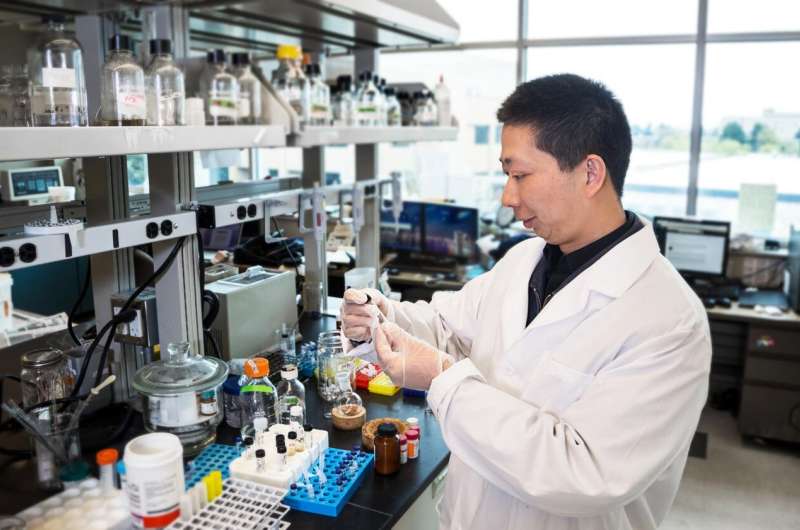Just add sugar: Research shows common antioxidant can be more beneficial through glycosylation

New research shows that polyphenolic compounds, which are commonly found in fruits and vegetables, can be combined with sugar molecules to create potential life-saving drugs.
Polyphenols are a class of compounds found in many plant-based foods. Polyphenols help prevent cellular damage in the body and can help to prevent diseases such as cancer or heart disease. However, many of them do not dissolve in water, making it difficult to fully take advantage of their health benefits.
Biological Engineering Professor Jixun Zhan and his graduate students Jie Ren and Caleb Barton recently published a comprehensive review article on engineered production of polyphenolic O-glycosides, which allow those polyphenolic compounds to remain stable and soluble through microbial fermentation. The study was published in Biotechnology Advances.
“Polyphenols have many different effects in the body and can be used to develop potential medicines and health supplements,” Zhan said. “They also have natural preservative properties and can protect our body tissues from damage caused by harmful substances. Unfortunately, the poor water solubility and low bioavailability has limited their health benefits, but by attaching sugar molecules, we can make them more soluble in water and stable.”
This process is called glycosylation. Researchers are using new methods, such as bacterial fermentation, to modify the sugar structures and glycosylation patterns of polyphenols. By studying the enzymes and processes involved in sugar biosynthesis, it is now possible to develop more effective glyco-drugs. Zhan’s article summarizes the different phenolic glycosides found in nature and the methods used to produce them.
“By exploring the mechanisms behind the production of these compounds in bacteria and providing methods for manipulating sugar biosynthesis, we can create useful medical agents and improve lives,” Zhan said.
Various methods have been developed to produce polyphenolic glycosides in the lab, but most are still at a small scale. Future research will focus on improving the efficiency of production processes, including optimizing fermentation conditions and finding better ways to transport the compounds.
“Polyphenolic glycosides are valuable compounds with diverse health benefits. Using microbes to produce these compounds in a controlled and cost-effective manner shows promise for large-scale production,” Zhan said.
More information:
Jie Ren et al, Engineered production of bioactive polyphenolic O-glycosides, Biotechnology Advances (2023). DOI: 10.1016/j.biotechadv.2023.108146
Citation:
Just add sugar: Research shows common antioxidant can be more beneficial through glycosylation (2023, June 14)
retrieved 14 June 2023
from https://phys.org/news/2023-06-sugar-common-antioxidant-beneficial-glycosylation.html
This document is subject to copyright. Apart from any fair dealing for the purpose of private study or research, no
part may be reproduced without the written permission. The content is provided for information purposes only.
For all the latest Science News Click Here
For the latest news and updates, follow us on Google News.

